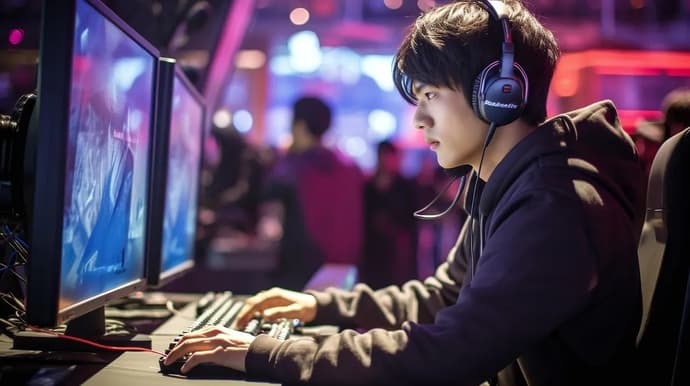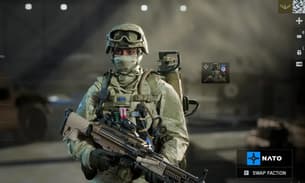
Why Battlefield Can Never Be a Good Esports Title

eSports have rapidly transformed from niche interests to a mainstream form of entertainment, drawing millions of viewers online and filling arenas with passionate fans.
With titles like League of Legends and Dota 2 thriving in the competitive scene, many people are still asking the same question: can the Battlefield franchise find its place in the competitive gaming landscape?
Despite its long-standing popularity and ample historical context, numerous factors have hindered Battlefield from ever truly establishing itself as a premier eSports title.
With that said, let’s now dive straight in and take a closer look at why Battlefield may never be a good eSports title.
The complexity of Battlefield gameplay
One of the core elements that makes a game suitable for esports is its accessibility and ease of understanding – both for players and viewers.
In titles designed for competitive play, clarity is key. In other words, audiences should be able to grasp the mechanics and dynamics quickly. Battlefield, however, boasts a complexity that can often deter new players and confuse casual viewers.
The vast array of vehicles, classes, and maps adds layers of strategy, making it difficult for novices to jump in. For example, a newcomer may spend considerable time learning how to operate the numerous vehicles, only to find out they were outmanoeuvred by a player with far more experience.
This complexity not only hampers player engagement but also complicates the spectating experience. Broadcasters would have to spend significant time explaining fundamental mechanics to new viewers, which can dilute the excitement of the competitive atmosphere.
The importance of consistency in eSports
Successful esports titles require consistency in gameplay mechanics and rules, allowing for a fair competition environment. Unfortunately, Battlefield’s ever-evolving nature poses a challenge.
Each iteration of the game focuses on different historical settings, battle mechanics, and gameplay structures. This inconsistency can alienate dedicated players who have invested time and effort into mastering one title only to be met with a completely different experience in the next.
In contrast, games like Counter-Strike: Global Offensive and Overwatch have carved out their niche by providing players with stable core mechanics and rule sets over time. This consistency is critical, not only for player retention but also for eSports betting odds.
Bettors want to wager on matches where the outcomes can be predicted with a degree of skill and knowledge about the game. The perpetual changes in Battlefield can create an unpredictable landscape, making it far less appealing to bettors looking for stable wagering options.
The community and competitive structure
For any game to establish a robust esports environment, it needs a thriving community and a well-organised competitive structure. The Battlefield community often leans toward casual gameplay, with many players enjoying the chaotic and expansive battles over competitive play.
While there are certainly clans and teams that pursue a more competitive lens, the culture does not support a cohesive structure like that found in eSports-centric games.
Another concern is the lack of support from the developers for an organised esports scene. Although DICE occasionally sponsors tournaments, the scale and frequency pale in comparison to the growing ecosystems seen in games like Fortnite and Call of Duty.
Without strong backing for tournaments, leagues, and a dedicated competitive pathway, the growth potential for Battlefield as an esports title remains stifled.
Final Thoughts
To sum up, while Battlefield has captured the hearts of millions as a thrilling first-person shooter experience, its complexities, lack of consistency, and inconsistent competitive community make it a less-than-ideal candidate for the esports arena.
As the landscape of esports continues to expand, the franchise’s traditional strengths may not align with the demands of competitive gaming.
For gaming enthusiasts eager to see what’s on the horizon, it’s best to look toward games designed from the ground up for competitive play rather than hoping Battlefield will make that leap.

Kateryna Prykhodko is a creative author and reliable contributor at EGamersWorld, known for her engaging content and attention to detail. She combines storytelling with clear and thoughtful communication, playing a big role in both the platform’s editorial work and behind-the-scenes interactions.
 Battlefield 6 Support Class Guide: Loadouts, Perks, and How to PlayDominate Battlefield 6 as the backbone of your squad — master revives, suppression, and sustain with our complete Support Class guide featuring top loadouts, perks, and tactical strategies.
Battlefield 6 Support Class Guide: Loadouts, Perks, and How to PlayDominate Battlefield 6 as the backbone of your squad — master revives, suppression, and sustain with our complete Support Class guide featuring top loadouts, perks, and tactical strategies.
 World Championship 2025 Junglers Tier-ListWorlds 2025 Junglers Tier List with stats, achievements, and analysis of top players like Oner, Canyon, Kanavi, and Tarzan. See who dominates the global stage this year.
World Championship 2025 Junglers Tier-ListWorlds 2025 Junglers Tier List with stats, achievements, and analysis of top players like Oner, Canyon, Kanavi, and Tarzan. See who dominates the global stage this year. Battlefield 6 Season 1 — Everything You Need to Know About the First SeasonEnter Battlefield 6 Season 1: Rogue Ops, packed with new maps, modes, and weapons that redefine the fight after the full-scale 2025 conflict.
Battlefield 6 Season 1 — Everything You Need to Know About the First SeasonEnter Battlefield 6 Season 1: Rogue Ops, packed with new maps, modes, and weapons that redefine the fight after the full-scale 2025 conflict. How to Make Clothes in RobloxDiscover how to make clothes in Roblox — design, upload, and sell for Robux.
How to Make Clothes in RobloxDiscover how to make clothes in Roblox — design, upload, and sell for Robux.

